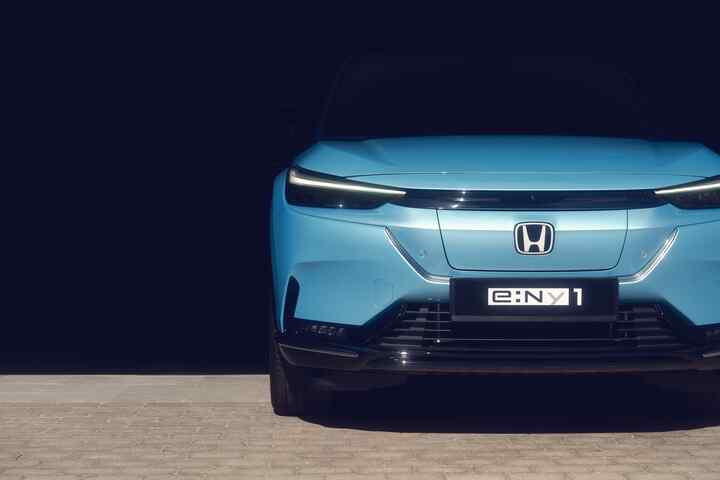
Electric Car Batteries Explained
How do EV car batteries work?
Electric car batteries work by storing energy that can power the electric motor in an electric vehicle. They are made up of a series of cells that have a positive electrode made of lithium or another metal oxide and a negative electrode made of carbon. When you charge the battery, an electric current flows through it and causes the lithium ions to move from the negative electrode to the positive electrode. When you use the electric motor and the battery is discharged, the lithium ions move back to the negative electrode and release energy. This energy powers the electric motor and turns the wheels of the vehicle, propelling it forward. EV batteries are large and heavy, but they can store a lot of energy, which makes them great for use in electric vehicles.
What kind of batteries do electric cars use?
The most common type of battery used in electric cars is the lithium-ion battery. These batteries have a high energy density, which means they can store a lot of energy in a small space. They are also relatively lightweight, which helps to improve the energy efficiency of the car.
Lithium-ion batteries are known for their ability to perform well in high temperatures and for their low self-discharge rate, which means they can hold a charge for a longer period of time when not in use. Other types of batteries, such as lead-acid and nickel-metal hydride, can also be used in electric cars, but lithium-ion batteries are currently the most popular choice due to their high energy density, low weight, and sustainability. They are made from materials that are abundant in the earth's crust and can be recycled, further reducing their environmental impact.
How long do electric car batteries last?
EV car batteries deteriorate over time and have a life expectancy of 15 to 20 years. They should last for an average of 99,419 miles to 198,839 miles, with many manufacturers offering a warranty of up to eight years. But, even when their lifespan as a car battery comes to an end, many EV batteries can be repurposed for a second life, to fuel the factories that originally made them, or even to power your home.
Are electric car batteries recyclable?
Many manufacturers, like Honda, are putting extra effort into making electric car batteries recyclable once they reach the end of their lives. One way they can be repurposed is by powering homes and other buildings – some even go towards fuelling the factories they were originally made in.
They can also be broken down into their parts and recycled that way. As the demand for sustainability continues to increase, manufacturers are constantly looking for new and innovative ways to recycle and reuse old car batteries.
How do I replace my electric car battery?
You’ll know it’s time to replace your electric car battery when the battery warning light appears on your dashboard or if you start experiencing electrical issues. Between 15 and 20 years is the average lifespan with proper maintenance, and Honda has a five-year warranty* on all our electric car batteries. When it comes to replacing the battery, take your car to your nearest Honda garage to get it professionally done.
The cost of changing your car battery has dropped over the years, so it’s likely to decrease a little further over time.
*Warranty may vary from model to model. Please consult a Honda retailer or your terms of purchase.
Do electric car batteries need servicing?
Yes, just like a petrol or diesel car, an EV will need servicing regularly – once a year. A service will check all the same points as any other car but will also check that your battery is still working optimally.
What purpose do battery cells have?
EV batteries are comprised of hundreds, sometimes thousands of cells. These cells generate power for the car – the more cells, the more power (kW). The downside of having a higher powered battery is that it comes at the expense of energy consumption, meaning the range will be lower despite better performance.
Can you jump-start an electric car battery?
Yes, you can jump-start an electric car if it has a standard 12-volt acid battery which is drained of any charge. It works much the same way as jump-starting a standard petrol or diesel car. This will allow the electronics that manage the car to operate. However, it must be noted that the lithium-ion batteries that power an electric car cannot be jump-started, so if it is a full EV it’s unlikely to make the car move.
Although, the chances of you ever needing to jump start a full EV are slim, thanks to the efficiency of the EV power system.
How long does it take to charge an electric car battery?
Fast charging - when using a 100kW direct current (DC) fast-charger station and plugged into the cars fast charge CCS (Combined Charging System) port, the e:Ny1’s powerful yet compact 68.8kWh battery can top up to a 60 mile charge in just 11 minutes and charge up to 10-80% in approximately 45 minutes.*
When using a public AC charging station, it can take approximately 6 hours to charge the 68kWh battery from 10-80% using an 11kW AC charger.*
*Indicative charge times shown, for comparison purposes. A charge from a 10% to 80% can be achieved in approximately 45 minutes with a 100kW DC charging or in approximately 6 hours with a 11kW AC charging, in optimal conditions, such as a temperature around 25°C. Actual charging times may vary depending on various factors, including the age, type, condition and temperature of the charging unit and the battery, the starting charge and environmental conditions such as the outdoor temperature at the point of use. Charge times may be longer in colder weather and if battery temperature activates safeguarding technology.
